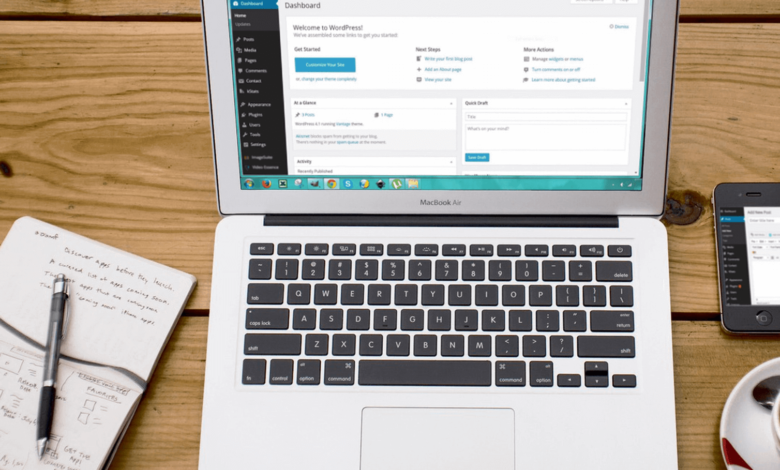The Road to Discovery: Maximizing Local SEO and PPC for Small Businesses

Standing out in the digital crowd is vital for small businesses looking to draw in local customers. Enter Local SEO and PPC strategies, the dynamic duo that can significantly boost a business’ online presence and lead generation in a highly specific market. In this comprehensive guide, we will dissect each approach, providing actionable insights and best practices that are tailored for local success.
How Local SEO and PPC Help Businesses Crack the Local Market
The local consumer holds immense value for small and medium-sized businesses (SMBs). Local SEO helps potential customers in a specific geographic area find your business through online searches. When well-executed, local SEO increases your visibility on platforms like Google Maps, Google My Business, and is integral to being highlighted on local searches and mobile searches.
PPC, on the other hand, is like a turbocharge for visibility. By focusing your ad spend on geographical targeting, you can ensure that you’re only spending money reaching people who are in your local area. PPC Agency Dallas mentions that a well-crafted PPC campaign can see immediate results, drawing in local foot traffic and website visits.
Real-World Examples
Local SEO Success Stories
- A neighborhood bakery might notice an influx of online orders after optimizing their website for local searches.
- A boutique fitness studio could triple its number of local walk-ins after improving its Google My Business listing.
PPC Boost for Local Restaurants
- A new pizzeria in town might use a PPC campaign to become the top ad on Google whenever someone searches for “pizza near me.”
- A café during its slow hours could run a PPC campaign offering a discount on coffee to local customers searching for a caffeine fix.
The Art of Local SEO: On-Page and Off-Page Optimization
Local SEO is about making it easy for prospective customers who are located near your business to find you online. According to Texas local SEO consultants, it involves a strategic mix of on-page content optimization, local listings, and acquiring reviews and backlinks from other local businesses or news outlets.
On-Page Optimization
Fine-tuning website content is a foundational aspect of Local SEO. This includes creating locally-relevant content such as blog posts about community events, integrating keywords targeting the local area into meta descriptions, and ensuring the website is user-friendly for mobile users as local searches often occur on the go.
Crafting Local Content
- A florist in Santa Monica could create a blog post about the best occasion for beach town bouquets.
- An accountant in Leeds might feature a guide on the local business tax incentives.
Google My Business and Local Listings
An optimized Google My Business (GMB) profile is crucial to your ranking in local search results. Ensure that your GMB details are accurate and up-to-date, encouraging customers to leave reviews and suggestions. Additionally, claim and manage your business listings on other platforms like Yelp, TripAdvisor, and local directories.
Optimizing GMB
- A local brewery could upload daily tap lists, hours, and address to GMB.
- A hair salon might utilize the booking feature within GMB.
Off-Page Strategies: Reviews and Local Backlinks
Off-page optimization involves leveraging external sources, such as directories or other businesses in the area, to improve your online presence. Encourage satisfied customers to leave positive reviews on platforms like Google or Yelp, and seek out opportunities for backlinks from other local businesses or news outlets.
Obtaining Reviews
- A dog
The Competitive Edge: Maximizing Local SEO and PPC for Small Businesses
In the digital era, local businesses face an immense challenge in standing out amidst the online noise. While the allure of global reach is undeniable, the reality is that customers often prefer local solutions to their needs. This is where mastering local SEO and PPC can offer a significant competitive edge to local entrepreneurs. We’re at a turning point where leveraging the tools available under the expansive umbrella of digital marketing isn’t just for the big players—it’s for everyone willing to learn and adapt. In this extensive guide, we’ll unveil how local SEO and PPC can be fine-tuned to boost your business, reach the right audience, and turn clicks into revenue.
Understanding Local Search Intent
Before leveraging local SEO and PPC, it’s crucial to appreciate the nuances of intent within local searches. Local intent signals that a user is looking for goods or services near them. This could be something they want in hand today, like a last-minute gift, or a service they require within a short travel distance, like a plumber.
Local intent can be quite explicit, with searches that include terms like “near me,” “close by,” or the name of a city or neighborhood. And it can be implicit as well. For example, someone searching for “pet food” may not add “near me” to their query, but search engines understand that pet food usually involves a local purchase.
By understanding this intent, businesses can not only target more effectively through SEO and PPC but can also cater to the immediacy and convenience local customers often require.
How to Read and Capitalize on Local Intent
- Content and keyword strategy should be tailored to include local identifiers.
- Utilize geo-targeting in your PPC campaigns.
- Offer local services, promotions, and events that cater to the community’s needs.
Local SEO: The Foundation of Your Digital Visibility
Local SEO is about being found where people are looking for you—online. It’s the foundation of your digital visibility within your geographic location. When done right, your business will appear for relevant searches on Google maps and local searches in organic search results.
Claim Your Google My Business Profile
Your Google My Business (GMB) profile is critical for local SEO. It’s the information hub for Google to reference when showing local search results. By claiming and optimizing your GMB profile, you increase the chances of being found by local searchers.
- Ensure your GMB profile is complete with contact information, business hours, and high-quality images.
- Encourage customers to leave reviews on your profile; positive reviews can significantly boost your local ranking.
On-Page Optimization with a Local Focus
The content on your website should serve a local purpose. Use city or neighborhood names in your meta descriptions, titles, and content to signal to search engines your localized relevance. Be authentic and informative.
- Create location-specific web pages if your business serves multiple areas.
- Include a local business schema to give search engines more context about your location.
The Power of Local Backlinks
Backlinks from local businesses and organizations validate your credibility and local presence to search engines.
- Network with local groups and businesses to build these connections.
- Sponsor or host local events and share the activity on your website, which can lead to local businesses and news outlets linking to you.
Navigating the Local SEO Landscape
Local SEO isn’t just about adjusting your website—it’s about creating an experience that resonates with locals. This includes setting up a review strategy, managing your reputation, and ensuring all your online information is up to date and accurate.
Online Directories and Citations
List your business in online directories and ensure the information is consistent across all platforms. Inconsistent information can hurt your local rankings.
- Prioritize popular directories like Yelp, TripAdvisor, and Yellow Pages.
- Use a service that can help maintain your directory listings to save time and effort.
Mobile-First Local SEO
Local searches are predominantly mobile. Ensure your website is mobile-friendly, loads quickly, and the user experience is seamless.
- Run your website through Google’s mobile-friendly test to identify issues.
- Optimize for local voice searches by including natural-sounding phrases people use when speaking, like “where can I find a nearby cinema?”
Remember: Local SEO is an Ongoing Strategy
- Monitor and tweak your strategy regularly to keep up with search engine algorithm updates.
- Keep a watchful eye on your competitors’ strategies and results to stay ahead.
Leveraging PPC for Immediate Local Visibility
PPC advertising can provide immediate visibility to customers who are ready to buy. For local businesses, this can be a game-changer, especially for those who are just starting to build their organic visibility.
Targeting Local Audiences with PPC
Google Ads and social media platforms offer highly granular targeting options that allow you to focus your ads on a local area.
- Use location extensions in Google Ads to show your address, phone number, and map pin.
- Create ad groups that are specific to different local neighborhoods or target towns.
Creating Local Ad Copy
Your ad copy should resonate with local audiences. It should speak their language and address local issues and events.
- Use localized language and terminology in your ad copy.
- Implement ad copy testing to see what resonates most with your local audience.
Developing an Integrated SEO-PPC Strategy
While SEO and PPC are both powerful tools in their own right, they’re even more potent when used together. Integrating the two helps in capturing more real estate in search results and gives insights into which keywords are most effective for targeting local customers.
- Use Google Analytics to analyze which PPC keywords convert well and focus on those in your SEO strategy.
- Look for high-performing organic search terms to incorporate into your PPC campaigns.
Tracking Your Local PPC Performance
Tracking key performance indicators (KPIs) is essential to understand what’s working and optimize your campaigns over time.
- Monitor conversions and click-through rates (CTRs) to understand cost-effectiveness and engagement.
- Refine your strategies by aligning PPC data with SEO trends and making informed changes to your website and content.
Remember: Patience and Analysis are Key to Local PPC Success
- Don’t rush into large campaigns without testing. Start small, learn, and grow.
- Use A/B testing to understand what local customers respond to best.
See also: Innovations in Pipette Measurement Systems: Improving Accuracy and Precision
The ROI of Local SEO and PPC
Both local SEO and PPC require an investment of time and sometimes money, but the returns can be substantial for local businesses.
Long-term Benefits of Local SEO
An effective local SEO strategy can provide passive traffic and leads for your business for years to come.
- Once pages are optimized, they require minimal upkeep to maintain their local rankings.
- SEO’s compounding benefits can lead to increased authority and trust, which supports all your digital marketing efforts.
Immediate Gains from Local PPC
A well-managed local PPC campaign can start delivering traffic to your site from the moment it goes live.
- Capture immediate sales and leads, especially during events or seasonal changes.
- Gather data quickly and learn what’s most effective in organic searches.
Calculating SEO and PPC ROI
It’s important to calculate and compare the return on investment (ROI) for both SEO and PPC to understand where your marketing dollars are best spent.
- Use tools like Google Analytics to measure traffic, conversions, and sales.
- Understand the customer lifetime value (CLV) of your local customers to gauge long-term significance of SEO and PPC efforts.
Remember: The Best Strategy is Informed by Data
- Always look at the numbers to see what’s working and what’s not.
- Use the insights to continuously optimize and evolve your local SEO and PPC tactics.




